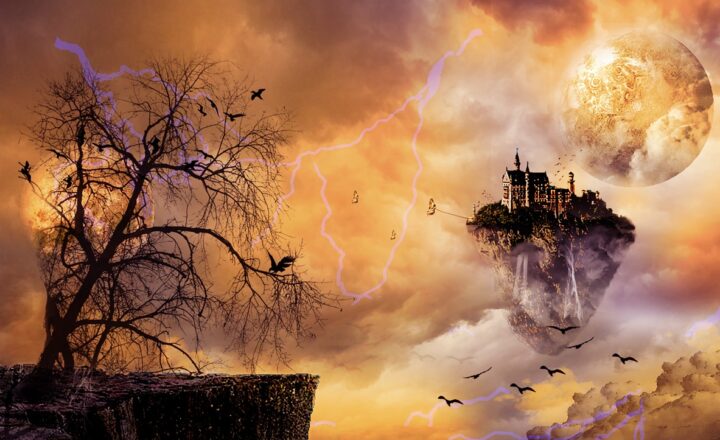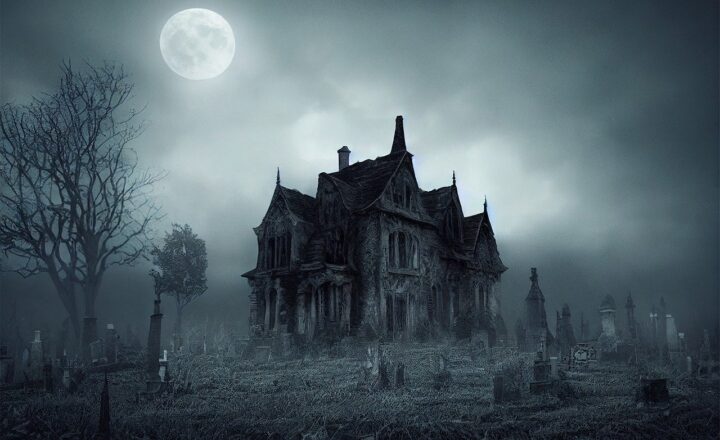The Scariest Supernatural Horror Movies and the Legends They’re Based On
November 17, 2024

Horror films have a unique ability to tap into our deepest fears, and supernatural horror movies often stand out as the most terrifying. These films not only evoke fear through suspense and jump scares but also draw upon chilling legends and folklore that have haunted humanity for centuries. In this article, we’ll dive into some of the scariest supernatural horror movies ever made, exploring the legends they’re based on and the cultural significance behind them.
1. The Exorcist (1973)
One of the most iconic horror films of all time, “The Exorcist” tells the story of a young girl named Regan who becomes possessed by a demonic entity. Directed by William Friedkin, the film is rooted in the real-life exorcism of a young boy known as “Robbie Mannheim” in the late 1940s. This exorcism involved a series of terrifying events that left the boy’s family desperate for help from priests.
The film’s chilling portrayal of possession and exorcism struck a chord with audiences, and its influence can still be felt in the horror genre today. The real-life exorcism serves as a haunting reminder of humanity’s age-old battle against evil forces.
2. The Conjuring (2013)
Based on true events investigated by paranormal experts Ed and Lorraine Warren, “The Conjuring” tells the story of the Perron family, who experienced disturbing supernatural occurrences in their farmhouse. The film highlights the Warrens’ role in one of their notable cases and also introduces us to the infamous doll, Annabelle.
The tales associated with the Warrens combine elements of demonology, witchcraft, and haunted history. Annabelle, in particular, is based on a supposedly possessed doll connected to various paranormal incidents, escalating the horror depicted in the film and reminding viewers of the real threats that may lie hidden within our homes.
3. Poltergeist (1982)
This classic horror film, directed by Tobe Hooper and produced by Steven Spielberg, revolves around the supernatural events experienced by the Freeling family in their home. Unbeknownst to them, their house was built on a former cemetery, leading to a series of terrifying hauntings.
Legends of poltergeists—spirits that manipulate objects and cause disturbances—have persisted throughout folklore. The film portrays the struggle between the living and the restless spirits of the dead, a theme that resonates with audiences and elevates the fear surrounding the unknown forces that could disrupt our lives.
4. The Ring (2002)
A remake of the Japanese horror film “Ringu,” “The Ring” explores the terrifying concept of a cursed videotape that brings death to anyone who watches it within seven days. The film delves into themes of tragedy and revenge, focusing on the character of Samara, a vengeful spirit with a dark past.
The legend of Samara is heavily influenced by Japanese folklore surrounding yurei, or troubled spirits, which are believed to possess unfinished business in the mortal world. This blend of modern horror and ancient legend creates a lasting unease, forcing viewers to confront their fears of the supernatural and the legacy of suffering.
5. The Babadook (2014)
This Australian psychological horror film directed by Jennifer Kent spins a tale of a mother and her son haunted by a sinister entity from a storybook called “Mister Babadook.” The film serves as a metaphor for grief and unresolved trauma, raising questions about the monsters we create through our pain.
The folklore surrounding the Babadook—often depicted as a dark figure that preys on the fears of children—draws from cultural representations of evil. The movie deftly combines psychological horror with supernatural elements, offering a fresh perspective on how legends can affect our mental states and manifest in our realities.
6. Hereditary (2018)
A haunting exploration of family trauma and grief, “Hereditary” tells the story of the Graham family as they unravel dark secrets after the death of their secretive grandmother. The film incorporates themes of demonic possession and ancestral curses, showcasing the impact of trauma across generations.
The folklore surrounding inherited curses and demonic influences highlights humanity’s fear of the legacies we may pass down, rooted in real-life cultural beliefs and superstitions. The film’s chilling depiction of supernatural forces lurking within family history amplifies the horror, leaving viewers questioning their own lineage and the ancestry of fear.
Conclusion
Supernatural horror movies have the unique power to reflect society’s deepest fears by drawing from historical legends and folklore. These films serve as a cultural mirror, revealing how different cultures interpret and respond to the unknown and demonic forces that linger in our everyday lives. They remind us that the real horror often lies not just in the frightful images on the screen, but in the legends and realities that inspire them.
As viewers, we find ourselves captivated and terrified, navigating the thin line between myth and reality, and perhaps questioning what horrors might await us in the dark corners of our imagination.








